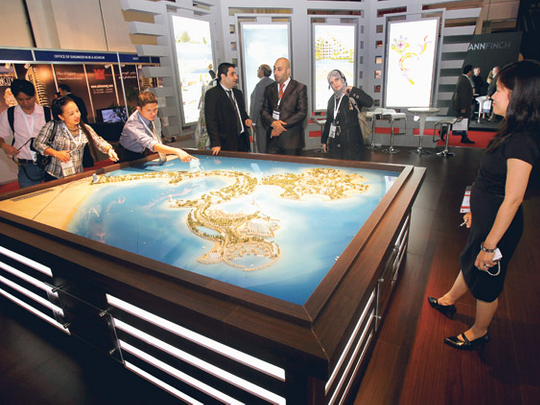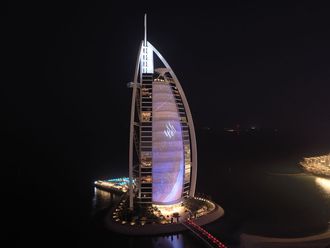
Dubai: Experts in the real estate and financial market gathering at this year's Cityscape stressed that technology could change the fundamentals behind building.
"Clicks are outdoing bricks, we think we will build and they will come is not so likely to happen anymore," said Thomas Barrack, chairman and CEO, Colony Capital.
"We're still thinking along traditional lines but the truth is that the young generation does most things online, buying books and watching movies. This has a phenomenal impact on real estate," he added.
So there may be no need to build cinemas or shops in the future, for example. Setting this thought aside, Sam Chandan, global chief economist for Real Capital Analytics, said it is time to regulate the property market instead of allowing it to spiral out of control.
Barrack pointed out that real estate's role within portfolios was a low-risk asset for diversification for 200 years. "But over the last 15 years we've been traders and created unfulfilled expectations. Now real estate seems boring and tiring and it will stay that way."
For anything to happen stability needs to return to global financial markets and 60 per cent of delegates believed this would take at least 18 months.
Another 48 per cent believed there would be little change to the lending environment for real estate projects within the next six months. "Real estate needs time, 12 to 18 months is not a long time in real estate. I believe that there is a chance that banks have stopped lending except to the best of clients and projects. They are cautious," said Graham Hallett, general manager, Abu Dhabi National Properties.
Money will return when the yields are sustainable again, said Fergal Harris, head of commercial real estate Middle East, Standard Chartered.
"Banks sell risk. Future supply, government backed or private quality buildings with proven tenant uptake, will reduce that risk. The tendency here is to throw money at the problem when it could be done via better planning and management," he added. Harris called for a more realistic assessment of achievable returns to secure lending, as banks will favour existing long-term clients, due to the huge shortage of dollar liquidity.
Due diligence
More time needs to be spent on due diligence and the legal system if not it is hard for anyone to value potential risks, said Tim Luckhurst, head of real estate advisory — Middle East at RBS. "Transparency is paramount. If a real estate investment company can get itself rated and prove sustainability of its project it can get low interest rates and could lock themselves into that," he added.
Hallett pointed out that real estate has ceased to be the driver but it is the infrastructure that determines the opportunities in this region supported by a sound legal structure.
Dubai "We're still in middle of the tsunami of economic recovery. People still have little confidence and government are terrible at handling the situation. The power is changing from developed to developing nations," said Thomas Barrak, chairman and CEO, Colony Capital.
And Sam Chandan, global chief economist for Real Capital Analytics, had the numbers to prove it. Between 2010 and 2015 developing economies are forecast to grow between 6 and 8 per cent compared to developed economies' growth of just below 2 per cent. The world average is 4 per cent and compared to that the Middle East is expected to grow 6 to 10 per cent in 2015.
"In 2009 China provided half of the global economic growth and in 2015 it will contribute 30 per cent to the global economy," Chandan said.
The US and other advanced economies will contribute another 30 per cent but the remaining 40 per cent will also come from other developing economies.
The clear shift in the balance of economic power has added weight when one considers who will be leading business in those economies. It may not be Western companies unless they team up with a local one.
"Everyone says one should be in China but it isn't so simple to take money out of the country. Together with India they don't need money, but added value and long-term commitment."












